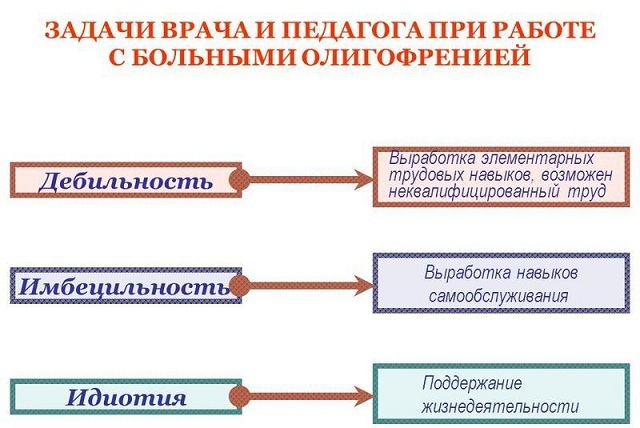 Under the influence of severe psychological trauma, a person may develop a psychotic disorder, which experts call reactive psychosis( psychogenic disorders of a particular nature and severity).Traumatic factors are significant incidents or events in personal and public life, environmental disasters.
Under the influence of severe psychological trauma, a person may develop a psychotic disorder, which experts call reactive psychosis( psychogenic disorders of a particular nature and severity).Traumatic factors are significant incidents or events in personal and public life, environmental disasters.
These are severe stresses and psychological traumas that are related to the death of relatives, loss of valuable property or work, military actions, forced emigration, negative natural phenomena threatening life and other shocks.
General description of
The development of the disease depends on the nature and duration of the psychotrauma, the state of mental protection, personality characteristics.
Another name for the disorder is psychogenic psychosis. Also, experts use terms - psychogeny, reactive state, psychogenic reaction, psychogenic shock, situational psychosis. Foreign researchers describe such states as psychogenic, stressful or abnormal reactions.
The main difference between this type of psychotic disorder is the complete reversibility of their development after the cessation of the traumatic cause or the treatment of the disease.
Active study of reactive states began in the late 19th century. Information, accumulated during the Civil War( 1917 - 1922), greatly expanded knowledge about them. Most researchers - physicians have recognized psychogenic diseases as an independent nosological unit.
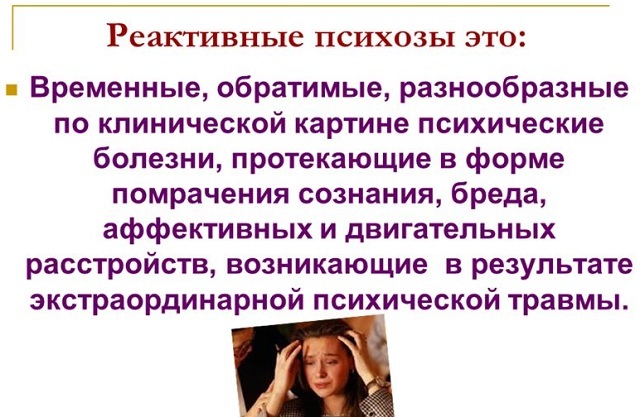
German psychiatrist K. Jaspers in 1946 for the diagnosis of reactive diseases identified the main clinical signs that were called the triad:
- the disease occurs as a result of psychological trauma;
- manifestations of psychogenic disorders are associated with intense exposure to adverse factors or stress on the psyche;
- mandatory extinction of the severity of symptoms after the termination of the psychotrauma.
The relevance of this triad is preserved at the present time. At the end of the 20th century, Russian scientists confirmed that 60-80% of people who were in a state of severe stress developed reactive psychoses.
 At the same time, their varieties are not combined into one rubric of the International Classification of Diseases, but are included in various blocks and classes.
At the same time, their varieties are not combined into one rubric of the International Classification of Diseases, but are included in various blocks and classes.
Manifestations of each of them are diverse, cardinally different, therefore included in various groups of diseases.
Psychoses are often detected in patients with borderline conditions. Some of them, especially neuroses, are often identified with psychogenic disorders. The main reason for this is the external impact on the psyche.
But the reaction to the psychogenic factor is, first of all, psychogeny. At the same time, temporarily, but completely lose the opportunity to critically assess their status and interact with the social environment.
Etiology of development and risk factors
The pathogenesis of psychogenic diseases is a strong emotional shock. But the psychotrauma causes the disease not for every person 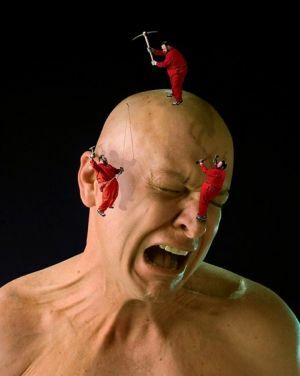 .
.
More often reactive psychosis is revealed in accentuated persons with pronounced character properties that are within the norm, but border on pathology. Also emotionally unstable, with high reactivity, hysterical, prone to paranoia are vulnerable.
Identify the risk factors in which the most likely development of psychogenic disorders:
- neuropsychiatric weakness, impotence, fatigue( asthenia);
- trauma of the brain( TBI);
- genetic predisposition;
- severe somatic and infectious diseases;
- physiological changes in the hormonal background( pubertal age, pregnancy, childbirth, menopause);
- sexual characteristics( women are more likely than men);
- intoxication of the body( alcohol, drugs, medicinal substances);
- avitaminosis, especially the lack of vitamins B1 and B3.
The probability of detecting a disease in a child whose relatives are ill with psychosis is very high.
Types of psychogenic disorders
Depending on the strength and duration of the psychotrauma, its nature, health status, personality characteristics, the following forms of psychogenic reactions are distinguished:
- acute reactive psychosis occurs suddenly, abruptly, lasts for several hours or days, is manifested by agitation or inhibition;
- protracted disorder develops due to prolonged psychogenic exposure, the patient is in a state of continuous severe stress from one week to a month, against which depression, delusional frustration, and paranoia develop.
Acute affective and shock reactions appear after a powerful psychotrauma, causing a huge emotional shock and a strong fear of loss of relatives and their lives. This can be stressful because of the death of loved ones, loss of property or freedom.
Affective-shock reactions are manifested in two forms:
- The motor( hyperkinetic) type of disorder is characterized by excitation. The patient embraces horror. Speech is upset or absent. The movements are "reactive", sharp, pronounced, chaotic, constant. Observation of consciousness is observed. The patient can aimlessly go, run, scream. After the attack, partial amnesia is noted, he does not remember the moments of an acute condition.
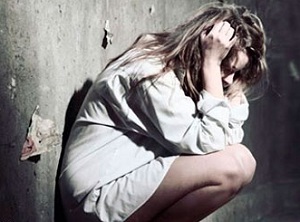
- With hypokinetic reaction motor dizziness manifests itself, considerable muscle tension is expressed. The patient is confused consciousness, a sense of danger is lost. He is in a stupor, does not react to anyone and does not react to anything. This condition lasts up to 3 days. The patient may lose memory for the period of the attack. These reactions can follow one after another.
Hysterical reactions
Hysterical psychoses are also a form of acute reactive conditions:
- Hysterical consciousness disorder( syndrome) is manifested by the patient's anxiety, focus on certain experiences, emotional imbalance, mood swings. The orientation in space and time is disrupted.
- Psychogenic false dementia( pseudodegmentia Wernicke) - a condition in which a patient can not act clearly, think clearly. He is disoriented, does not know the place of his stay, does not remember the past, is confused, his consciousness is confused. On simple questions answers wrong, but on the topic. Violated speech and writing words, letters. His face with a foolish smile or expresses sadness and fear.
- Puerilism - the transition of the adult's mental activity to a child's level. Appears childish in his behavior and speech. Such people do not pronounce some letters, words, grimace, play with children's toys, take offense if they do not fulfill their demands. The skills of an adult are lost, sometimes only a few are retained - the use of cosmetics, smoking, shaving. This condition itself is rarely manifested, more often - in parallel with false dementia.
- Emotional( hysterical) stupor - a condition with motor retardation and narrowed consciousness. Characteristically strong muscular tension, the patient is long motionless, but resists attempts to change the position of his body. He does not go into contact, refuses to eat. A face with a stopped look, expresses despair, sadness, anger. If the patient comes out of the stupor gradually, then signs of paralysis, unstable gait, trembling in the whole body or some of its parts may appear.
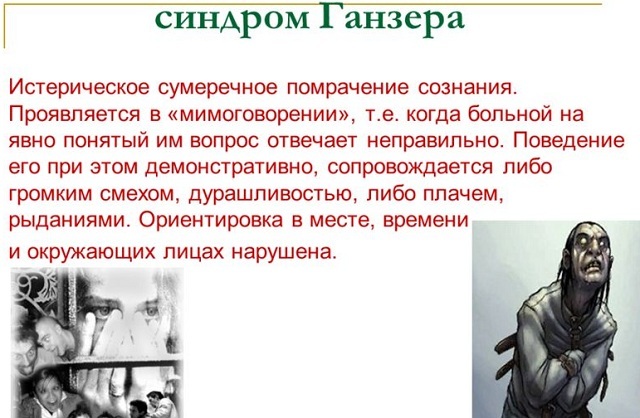
Prolonged reactive reactions
There are two types of protracted psychogenic psychoses - reactive depression and delusional psychosis.
Reactive depression occurs after the death of native people, in the hardest life situations. It is manifested by depression, tearfulness, unwillingness to communicate. The patient closes in himself.
He is endlessly looking for his guilt in what happened, fixated on the situation, to relive it again. There may be thoughts of suicide. The prolonged course of depression leads to vegetative disorders - loss of appetite, sleep disorder, heart palpitations and others.
The reactive paranoid( delusional psychosis) is expressed by ideas and statements that are not true. Expressed fear, confusion, anxiety, upset consciousness. Gradually, ideas become delusional, the patient can not properly assess their state and behavior.
Often develops delusions of persecution, other ideas. Such psychoses often reveal among convicts, prisoners of war, emigrants.
Diagnosis and treatment
The psychiatrist establishes a diagnosis based on the collection and study of an anamnesis, a psychopathological examination of the patient. The basis of the study is communication with the patient.
The doctor pays attention to the dynamics of the development of manifestations, their disappearance or weakening after a favorable resolution of the psychotrauma.
When diagnosing the most important is the triad of Jaspers.
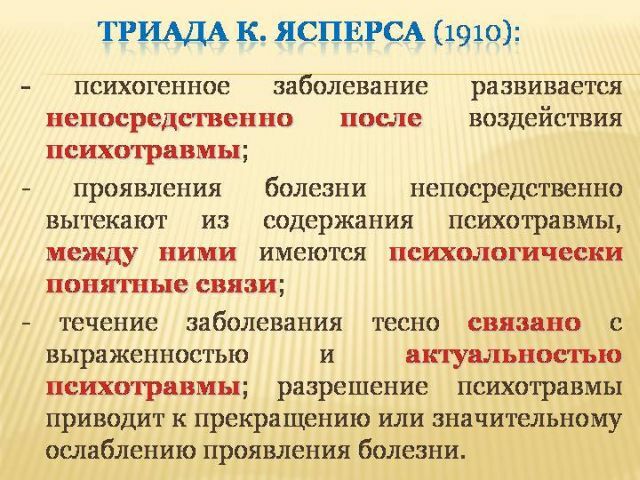
Specialist considers that psychotraumatic causes can also contribute to the development of certain mental illnesses of endogenous origin. Therefore, reactive psychosis is differentiated with schizophrenia, manic-depressive and organic psychoses.
Differential diagnosis is carried out during the period of the development of the disease and the emergence from it.
The treatment of reactive psychoses is complex, usually in the hospital. Medications are combined with psychotherapy, they are selected individually.
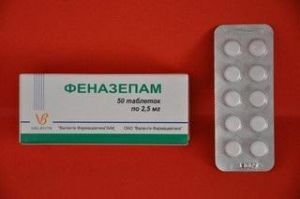 With reactive depression, tranquilizers and antidepressants( Phenazepam, Medazepam, Anafril, Imipramine) are used.
With reactive depression, tranquilizers and antidepressants( Phenazepam, Medazepam, Anafril, Imipramine) are used.
Delusional psychoses are treated with neuroleptics with sedative and antipsychotic action( Trifluoperazine, Triftazin, Haloperidol).
With hysterical psychoses, tranquilizers and neuroleptics with antipsychotic action( Thioril, Thioridazine) are used.
Emotional stupor is removed by psychostimulants with a gradual action( Mesocarb or Sidnokarb).
In psychogenies with motor excitement prescribe antipsychotic sedatives and antipsychotics( Chloromazine, Perfenazine, Tizercin).
The main method of treatment of psychogenic psychoses is psychotherapy. In mild cases for a few meetings, the specialist removes the manifestations of the disease.
The experience and professionalism of the therapist is important. It determines the factors that caused the psychosis on which the patient is concentrated. Treatment is directed to them. The doctor helps the patient to return to normal life, to adapt quickly to it.

He is taught to resist stress, self-relieve tension, accumulate positive emotions.
The specialist conducts family psychotherapy, teaches relatives the right relationship with the patient, creating an enabling environment for full recovery and the possibility of helping to overcome stressful situations in the future.
Timely skilled care in reactive psychosis without a history of aggravated disease provides a favorable prognosis for recovery. After an exit from a stressful situation the patient is contact, adequate, does not lose emotional ties with relatives and friends.



